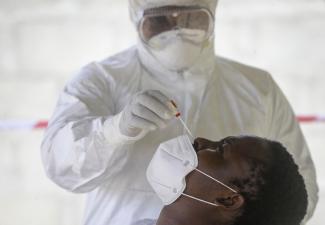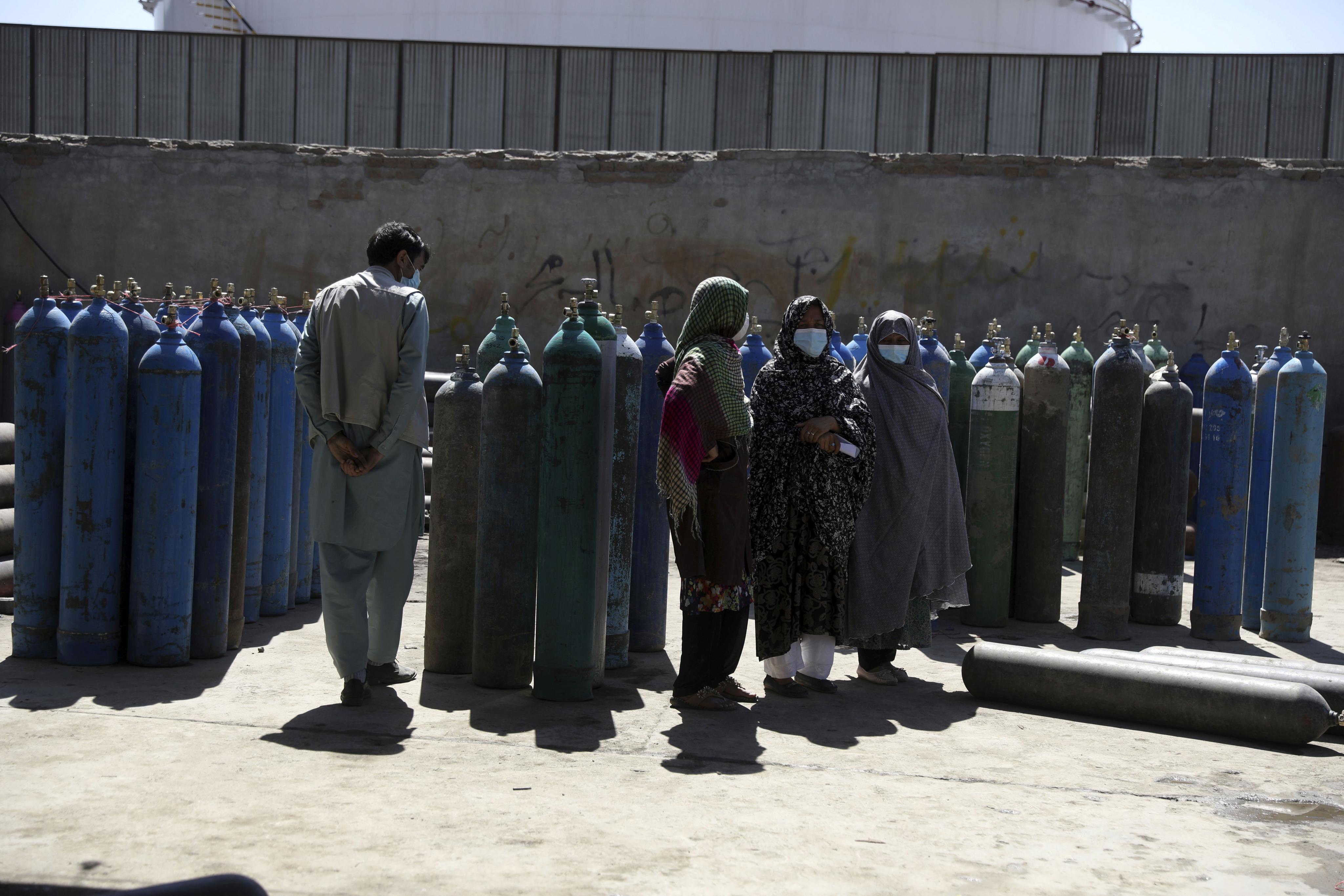Pandemic response
Global solutions required

The scale of the current crisis is dramatic – not only in Germany or in Europe. It is developing countries and emerging economies that are being hit the hardest. Once again we are learning that global problems need global solutions. It is in our own interest to fight the virus worldwide because, apart from it being our humanitarian duty to help, if we do not, the virus will return to us. We therefore need to be looking beyond Germany and Europe. And there is a lot to be done:
- There are 4.2 billion people who have no access to adequate sanitation. That is why the risk of infection is three times higher in many developing countries than it is in Europe.
- Developing countries have inadequate or insufficient laboratories, intensive care beds and ventilators.
- The situation is especially precarious in densely populated urban areas, slums and overcrowded refugee camps.
But beyond the immediate health consequences, developing countries are suffering economically because of the lockdowns imposed by the various governments and because of the abrupt halting of the world economy and the breakdown of supply chains, many of which have their starting point in Africa, Asia or Latin America. Countries with no or with insufficient social security systems – especially in Africa – are now feeling the enormous consequences:
- Millions of people are facing the total loss of their livelihoods as a result of the breakdown of global supply chains.
- Government revenue is declining by a dramatic 20 to 30 %.
- Nearly $ 100 billion in capital has already been withdrawn from developing and emerging economies.
- There are 20 million jobs that have been lost in tourism alone. In Bangladesh, 4,000 textile factories, which usually employ four million workers, were obliged to close temporarily.
We need to successfully fight the pandemic and its social and economic consequences globally. We therefore have to improve the availability of testing, ventilators and protective gear, as well as strengthening national health systems. In addition, we must not lose sight of the need to continue our fight against other diseases such as AIDS, malaria, tuberculosis, et cetera.
At the same time we need to help our partners by sharing the burden of the economic impact. While western countries have set up a protective shield for their economies worth trillions of euros, developing countries are being suffocated by their debt servicing obligations. Our efforts to achieve the Sustainable Development Goals – SDGs (especially SDGs 1 and 2) are being challenged.
Finally, as the Secretary General of the United Nations has put it: “We simply cannot return to where we were before Covid-19 struck, with societies unnecessarily vulnerable to crisis. We need to build a better world.” We need to change the design of globalisation. We must make sure that this health crisis does not undermine our efforts to fulfil the 2030 Agenda and combat climate change.
That is why we have gone ahead: In 2020, we are funding a one-billion-euro Emergency Covid-19 Support Programme by restructuring the budget of the German Development Ministry (BMZ) and increasing our efforts in the following seven areas:
- Health and pandemic control
- Food security and basic food services to prevent famines
- Stabilisation of fragile regions affected by displacement
- Social protection and securing jobs in global supply chains
- Additional economic support for enterprises in key industries such as textiles and tourism
- Government liquidity
- International cooperation
Covid-19 is also a global wake-up call that cries out for international cooperation and solidarity. We need to combine forces and mount a joint response under the leadership of the United Nations.
The Corona crisis is also a stress test for multilateralism. The debt moratorium by the G20 and the Paris Club (and also China), for the poorest countries is a first encouraging signal. However, bearing in mind that this is a global challenge – we cannot leave it at that. Either we win this fight by working together globally or we will not win it at all.
Link
BMZ (Federal Ministry for Economic Cooperation and Development), 2020: Corona-Sofortprogramm (Emergency Covid-19 support programme – only available in German).
http://www.bmz.de/de/zentrales_downloadarchiv/Presse/bmz_corona_paket.pdf
Gerd Müller is Germany’s federal minister for economic cooperation and development.
www.bmz.de









